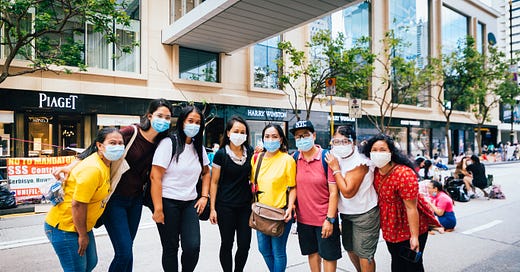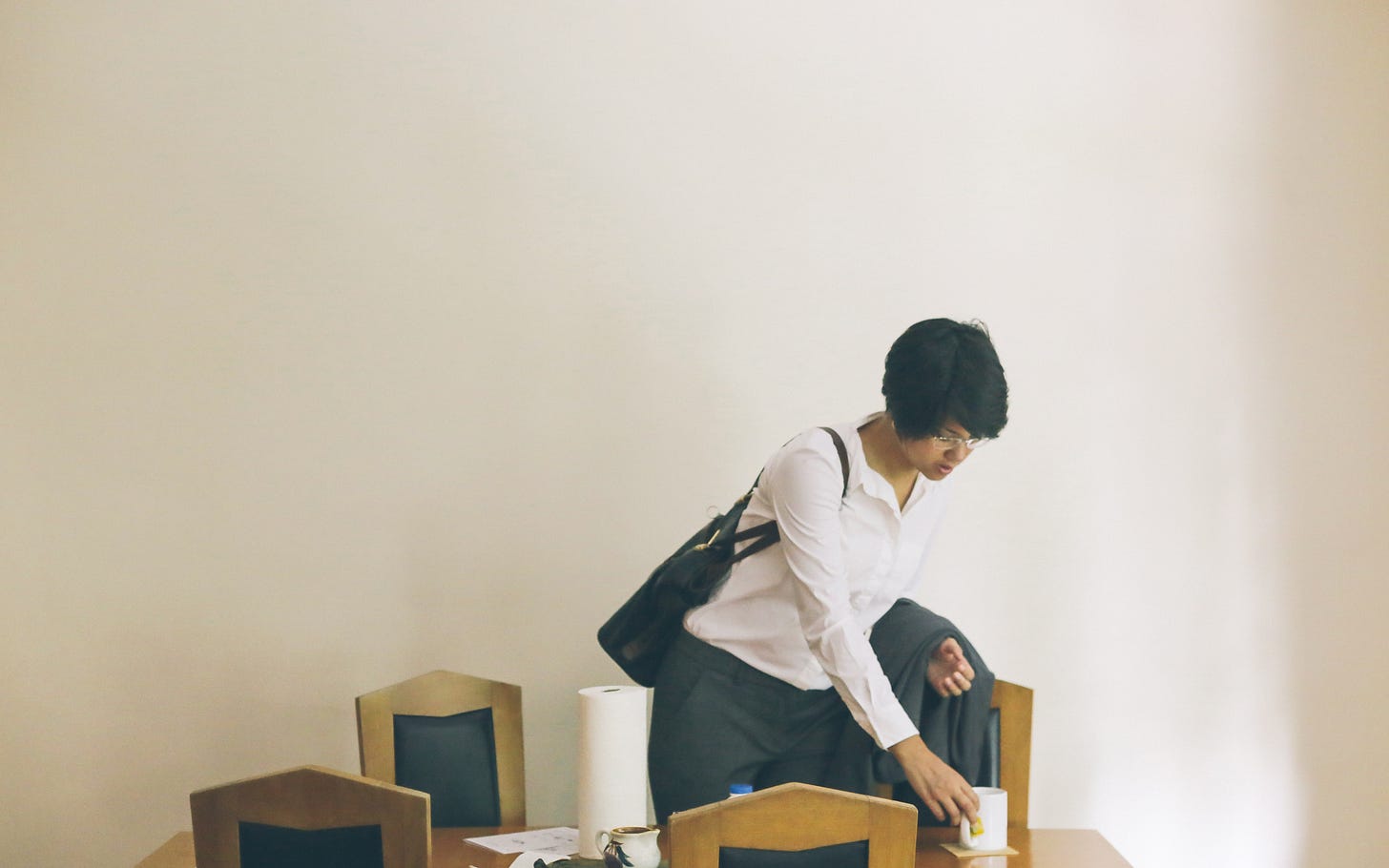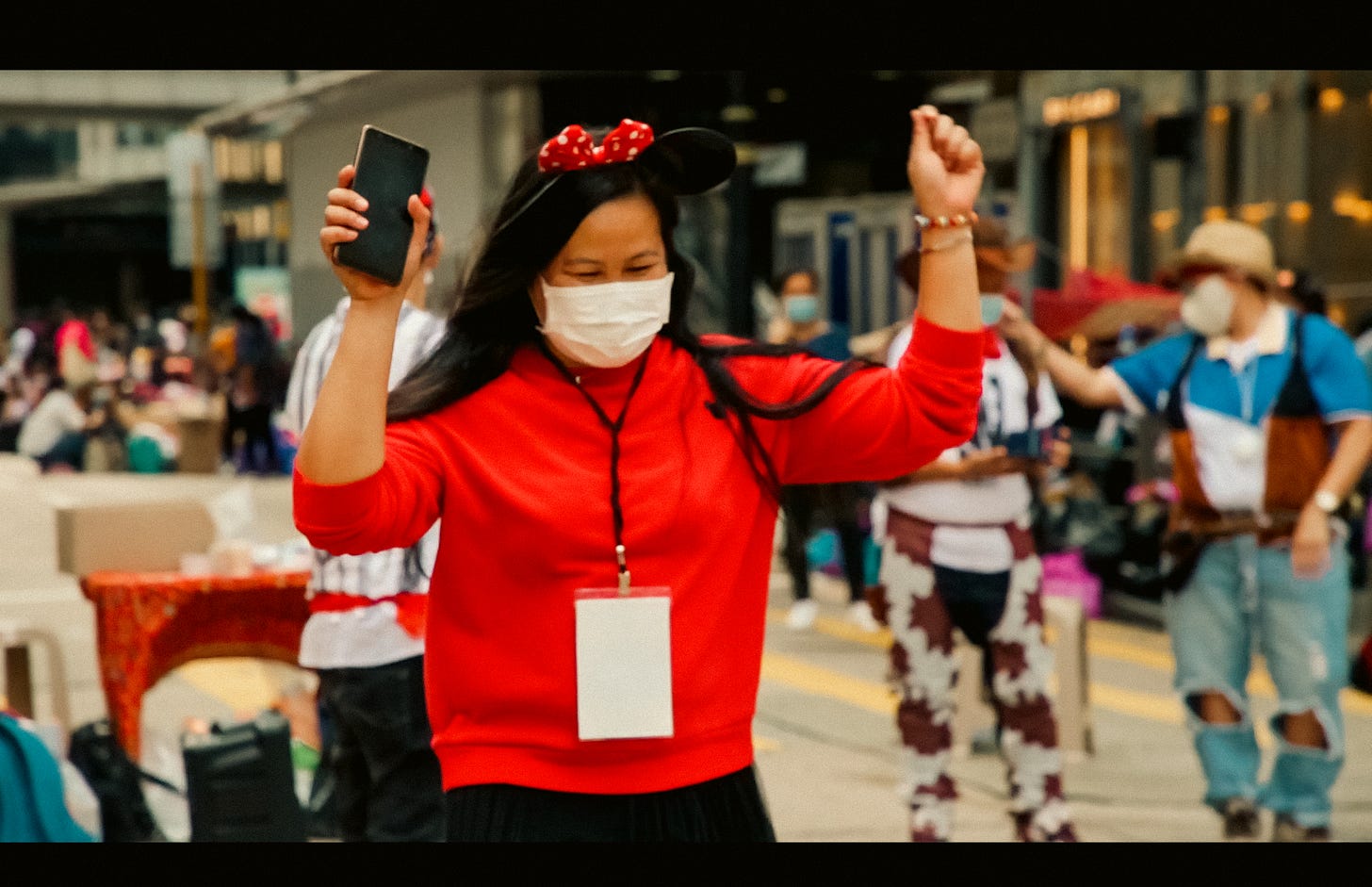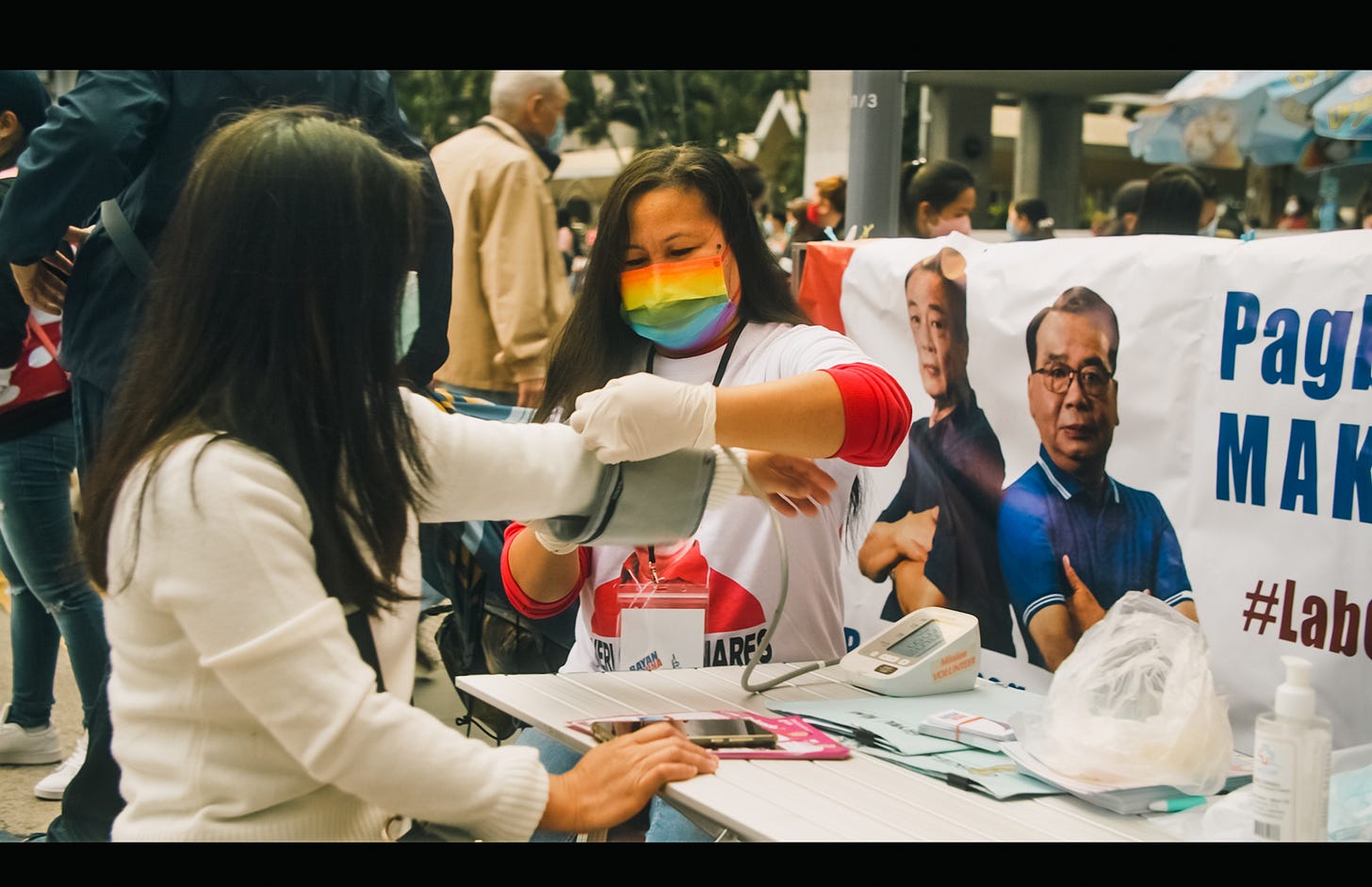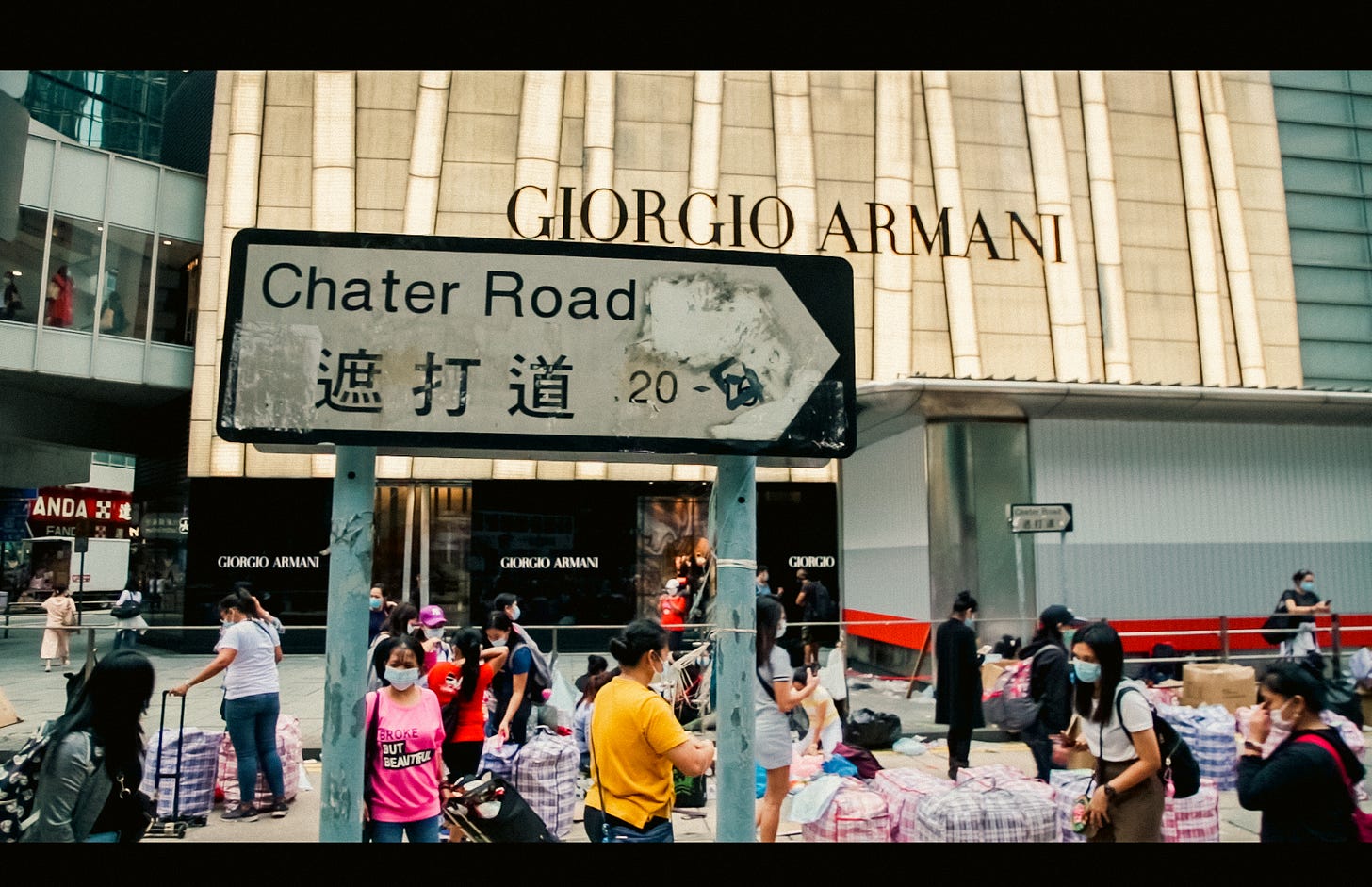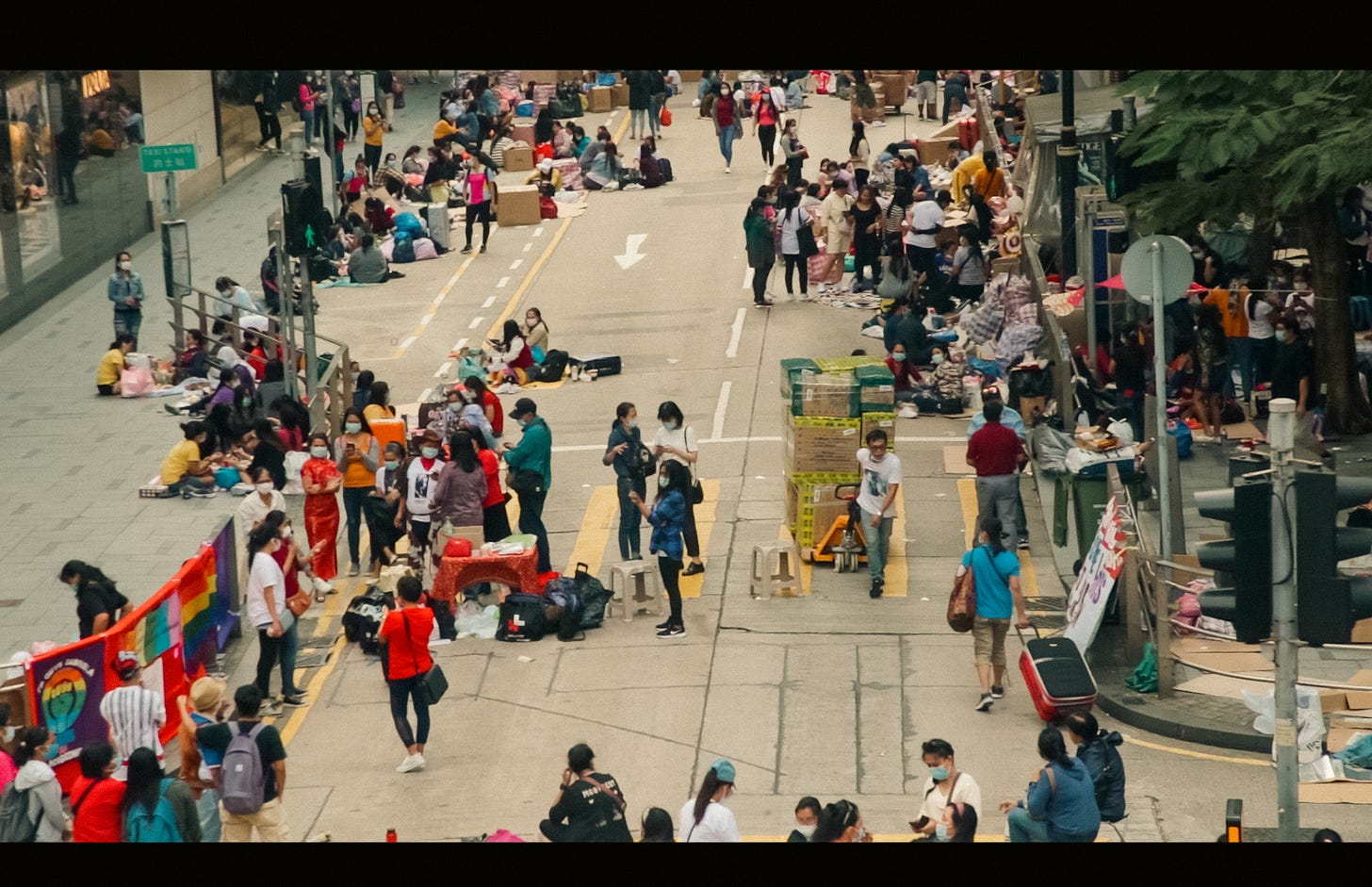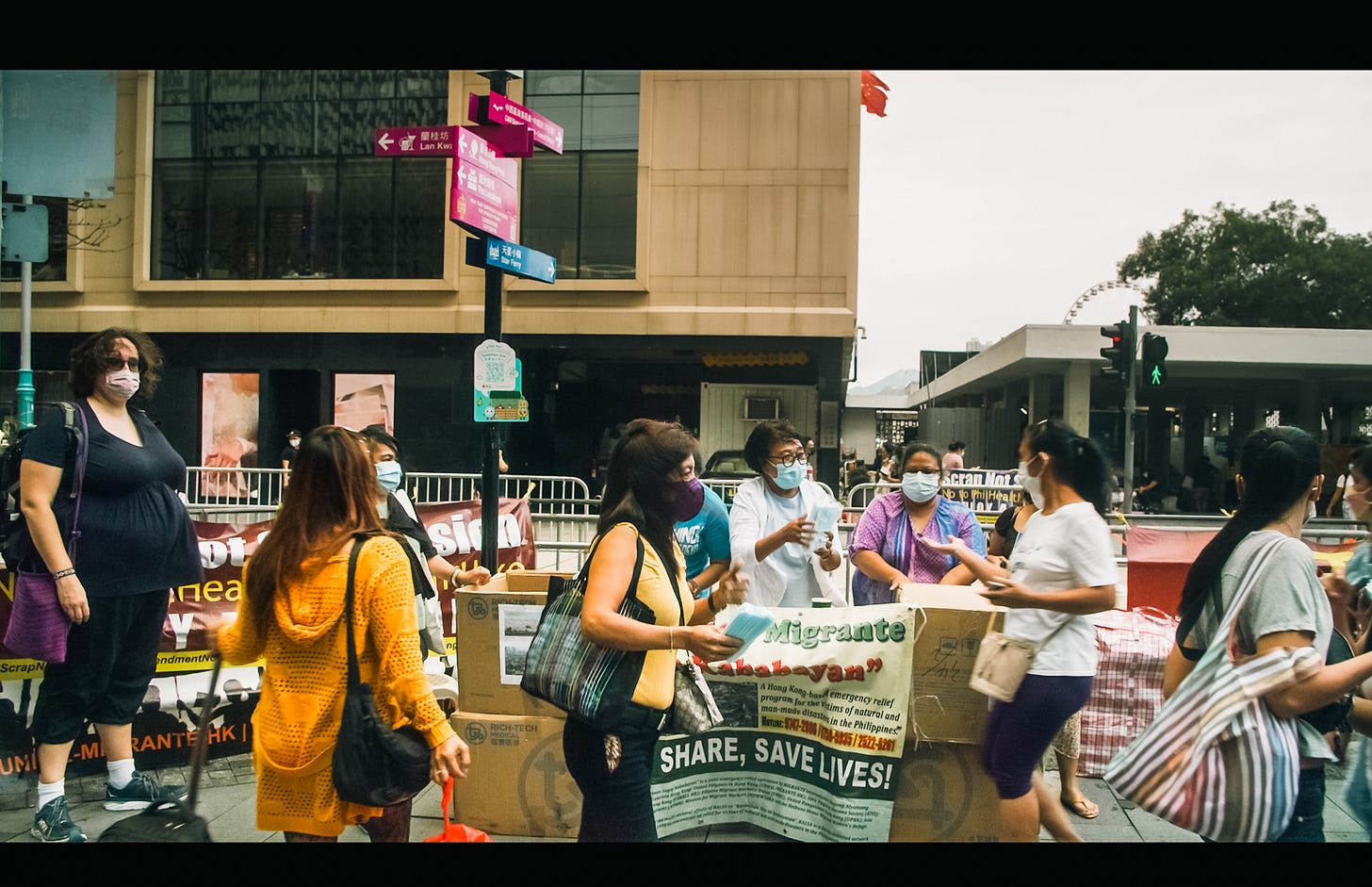In this newsletter, I share the origin story behind my documentary project, explain the process of red-tagging, and give more behind the scenes images from the documentary itself. Let’s go!
When my wife Lydia finished her PhD program, there weren’t many job options for her in the US. An opportunity came up in Hong Kong, so we decided to go for it and made the leap across the ocean in the summer of 2018. Lydia’s academic discipline is in sociolinguistics, and her work focuses on how language impacts society. She has always been interested in how her work could have real-world impact, so when we first moved to Hong Kong, Lydia was eager to find a community she could spend time with and learn from with the hope that her research might also benefit them.
Through our church connections, Lydia was introduced to the Filipino domestic worker community. Researching and learning from Filipino migrants meant Lydia would have to spend a lot of time with new people and get to know new cultural dynamics. Lydia is not Filipino, but I am. You would think that being a good partner, I would have gone with Lydia to meet new friends - if not out of my own curiosity, then at least out of some level of solidarity with her. But I guess I’m not that good of a person haha. I didn’t go with Lydia and left her to make friends on her own.
As you know, meeting people for the first time can be awkward. Lydia would come home and tell me all the embarrassing things she said or did, and I would laugh at her misfortune. But after almost a year of hearing what she was learning, the cool people she was meeting, and the good food she was eating, I decided to go with her.
As I hung around more, I came up with ideas for projects. I started bringing my camera and filming migrant-hosted events and learning about the issues migrants faced in the process. One thing led to another, and here I am making a documentary. But the moral of the story is that I really appreciate Lydia. I’m a shy person, so I wouldn’t be doing this project without her and the work she did meeting new people. Of course, there are many other people who have brought this project to life and who I also hope to highlight. But I start with Lydia because I want to show how learning from the migrant community led her to specific projects where her research on how language impacts society came to life in very tangible ways. In the next section, you can watch Lydia’s work and see how it informs and overlaps with my documentary project.
What is Red-tagging?
Lydia put together a video for her students and others that looks at the issue of red-tagging and its impacts in the Philippines and on Filipino migrants here in Hong Kong. As I mentioned in previous newsletters, Filipino migrant activists who speak out against the injustices of workers in Hong Kong and the Philippines often become the victims of smear campaigns despite their tireless work to advocate and serve those in need. More specifically, these smear campaigns are a form of red-tagging, where people are maliciously accused of being “communists,” and by extension “terrorists.” For Filipino migrant activists, these accusations not only endanger their lives, but also make it difficult to go back home to the Philippines to see their families.
In her own words, Lydia says her hope for the video is “to impress upon students and others that while red-tagging often starts with language — a post on Facebook, an accusation on a tarpaulin, targeting a human rights defender in a speech — the affects of red-tagging go far beyond language, destroying human life and undermining democratic processes and human rights in the Philippines.” The video was produced with Lydia’s teaching context in mind, but it also comes out of our ongoing solidarity work with the Hong Kong Campaign for Human Rights and Peace in the Philippines (HKCAHRPP).
We were invited to join HKCAHRPP by migrant leaders after we kept asking them how we could help and be more involved. The organization works in solidarity from Hong Kong to promote peace and human rights in the Philippines and to stop state-perpetrated rights abuse. We weren’t expecting to get involved in human rights issues, but through the process, we have learned about red-tagging and many other issues as well as the ways we can concretely support our friends who are migrant activists. Through our work as members of HKCAHRPP, we have seen the importance of extending our solidarity not only to Filipino migrants in Hong Kong but also to understanding the root causes that lead them to migrate out of the Philippines in the first place - for example, lack of job opportunities and livable wages.
In this way, my documentary project has also very much emerged out of my relationships with the migrant community and my involvement in HKCAHRPP. Many of the members have supported me in the process by helping me build relationships with different migrant organizations, taking time to educate and explain things to me, and reviewing and giving feedback on my footage. As part of my seminary education, I also did an internship with HKCAHRPP as a way to better understand how the church sector can be more engaged in human rights and migration issues. Through the process, I was able to integrate more deeply with the migrant community, become educated about migrant concerns and human rights issues in the Philippines, and gain organizational support to help push the documentary forward.
Documentary Images
Through the documentary, I take a look into some of the lives of migrant activists in Hong Kong who have been red-tagged. Through the camera and lens, I try to give an intimate look into the lives of Filipino domestic workers and highlight their dignity and humanity. Despite the risks they face, I have been inspired by their resolve to continue compassionately serving others. Here are a few images from scenes I’ve been working on these last two weeks. Things are continuing to move ahead, and I’m looking forward to sharing some exciting news with you in my next update!
Thanks for reading! I plan to share an update every two weeks. In the meantime, I would love to hear from you. Leave me a comment or reply to this message. If you enjoyed this post, please also feel free to forward it to others. See you soon!
Francis Catedral is a Filipino American documentary filmmaker and theology student. His current documentary project is about the transnational activism of Filipino migrant domestic workers in Hong Kong.
